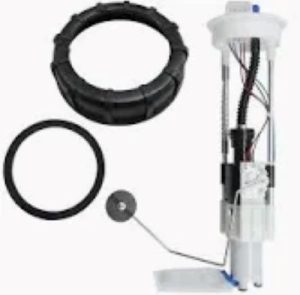How to tell if it is the fuel pump: If your engine stutters during acceleration, lack of power and difficult starting then you can diagnose that the Delica's issue lies in the fuel pump area. When the fuel pump can not generate the necessary fuel pressure (typically 40 – 60 PSI), then engine performance is going to suffer. The fuel pump might only generate 30 pounds-per-square inch (PSI) instead of the required 50 PSI; in this case, the engine would not receive sufficient fuel during acceleration, resulting in a hesitation or stall.
Step 1 – Check Fuel Pressure with Gauge However, it could be a sign that under load the pump may not be supplying as much pressure as the manufacturer suggests. An example would be the pump failing when the car has a call for 60 PSI but only showing 40 PSI. A fluctuation in pressure is another potential sign of a blockage (i.e., anywhere in the fuel filter or lines) that could be impairing pumpwe 1 performance. A fuel pressure gauge, a tool that can be had for around $30, is the best way to identify these problems.
A fuel tank that is making noise can be indicative of an issue as well. If it is noisy or erratic sounding, this means that the fuel pump is nearing its end. A working fuel pump has a slight humming noise when you turn on the ignition. In 2019, Ford had to issue a recall thousands of vehicles because fuel pumps were making noise and stalling cars. These sounds were meant to alert drivers before the pumps completely shut down, and obviously that was too unsafe.
Checking fuel economy is one more way to find out if there are fuel pump problems. If you're suddenly feeling your car is less efficient, it could also be an indication that the pump isn't delivering a sufficient quantity of fuel. So, if a car rated at 25 MPG under normal circumstances starts getting only 20 MPG without driving habits changing, it is possible that the fuel pump may be barely able to maintain the proper flow. Additional fuel could be burned if a pump has to work harder to meet its normal parameters.

Fuel pump problems may also be red-flagged by the performance of the vehicle at higher speeds. When a vehicle is fine at less speeds but has issues on the highway, it may be being starved of fuel to supply the larger demand for gas that the engine produces. A 100-litres-per-hour pump can be adequate for the city, but if you need 150 litres per hour for highway running, this creates a problem.
Also, with electrical tests, you can get even more insight. A multimeter will be used to measure fuel pump connector voltage. Typically, pumps run on 12 volts, so if you see a lower reading there might be an electric issue like a bad relay, fuse or wire. In many cases, the problem is a $10 relay and not a pump that costs $100—$500 (variable by vehicle).
Another thing to consider when choosing a fuel pump is the life span of the same. They are generally rated to last for 100,000-150,000 miles but fuel contamination and other factors may shorten their service life. This is not the first time that a manufacturer has received fuel pump-related complaints in 2020: General Motors also encountered issues with contaminated fuel. Refeeding a fresh fuel can increase the pump´s life and avoid the premature failure.
If you would like to learn about how to diagnosis a fuel pump problem, click the link. Fuel Pump